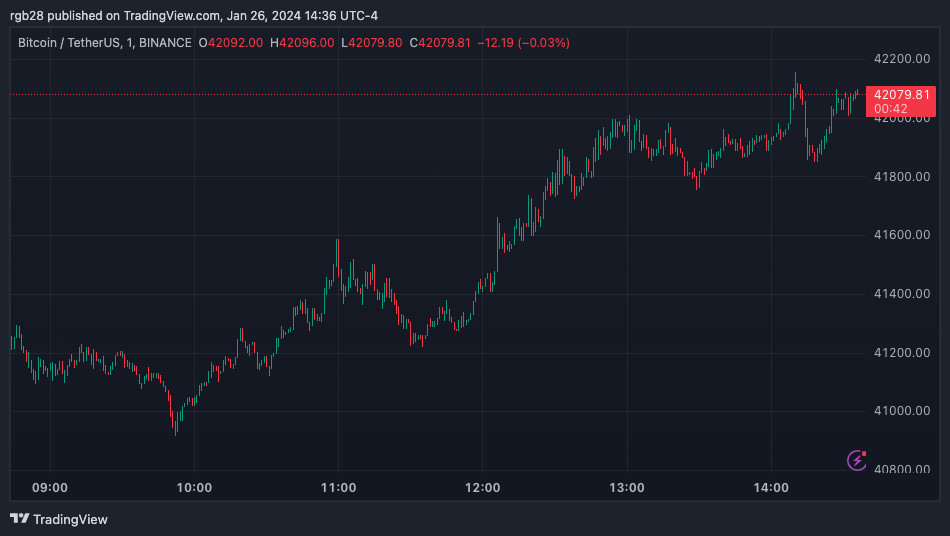Recently, entrepreneur Vivek Ramaswamy dropped out of the US presidential race to endorse Donald Trump’s candidature. In an interview, the former Republican candidate explained his influence on the former US President’s position against Central Bank Digital Currencies (CBDC) in the US.
Vivek Ramaswamy Responsible For Donald Trump’s Stance?
During an interview on Bloomberg Television, former Republican candidate Vivek Ramaswamy explained how he influenced Donald Trump’s stance on the possibility of creating a digital dollar.
As reported by Bitcoinist, Donald Trump stated his position on CBDCs during his speech in Portsmouth, New Hampshire, on January 17. If elected president, the Republican candidate promised to protect Americans from “government tyranny” by never allowing the creation of a central bank digital currency in the US.
In the interview, Ramaswamy explained that he spoke to Trump about his concerns about CBDCs a week before, at one of the previous rally dates. The entrepreneur complimented Trump, crediting him for “being intellectually open” and listening to his advice.
This advice led the former president to come out “strongly in favor of what I believe is the right answer, which is to oppose the creation of a central bank digital currency,” as the entrepreneur said.
This week, Trump reiterated his position about CBDCs and praised Ramaswamy by giving credit for teaching him about the “dangers” of a digital dollar issued by the Federal Reserve. “Vivek is great, he’s really great. He wanted this, and I’ll give him full credit for it,” Trump said in Laconia, New Hampshire.
CBDCs Are “A Threat To Liberty”
Ramaswamy believes that a CBDC “is a threat to Liberty in this country,” as he states in the interview, “because it creates a mechanism for the government to be able to wipe out your bank account or wipe out your dollars if you say or do something that the government disapproves.”
The entrepreneur’s belief can be spotted in Trump’s previous statements. The Former president said that a digital dollar “would be a dangerous threat to freedom” that would give a federal government “absolute control over your money. They could take your money, and you wouldn’t even know it was gone.”
Undoubtedly, a sense of security is an essential feature that draws people to Bitcoin and cryptocurrencies, as many fear that traditional assets and assets managed by states can be seized at any moment.
Privacy concerns are another issue that users bring forward when it comes to CBDCs, as many fear their data will be accessible to central banks and governments through digital currency platforms, as feedback shows in previous consultations from countries like England.
Lastly, Ramaswamy took the opportunity to discuss his view on the regulatory entities of the US once again, affirming that the SEC is among the US agencies that “have been guilty of a regulation by enforcement agenda.” He considers this agenda responsible for the regulatory decisions “based on who they enforce them against.”







